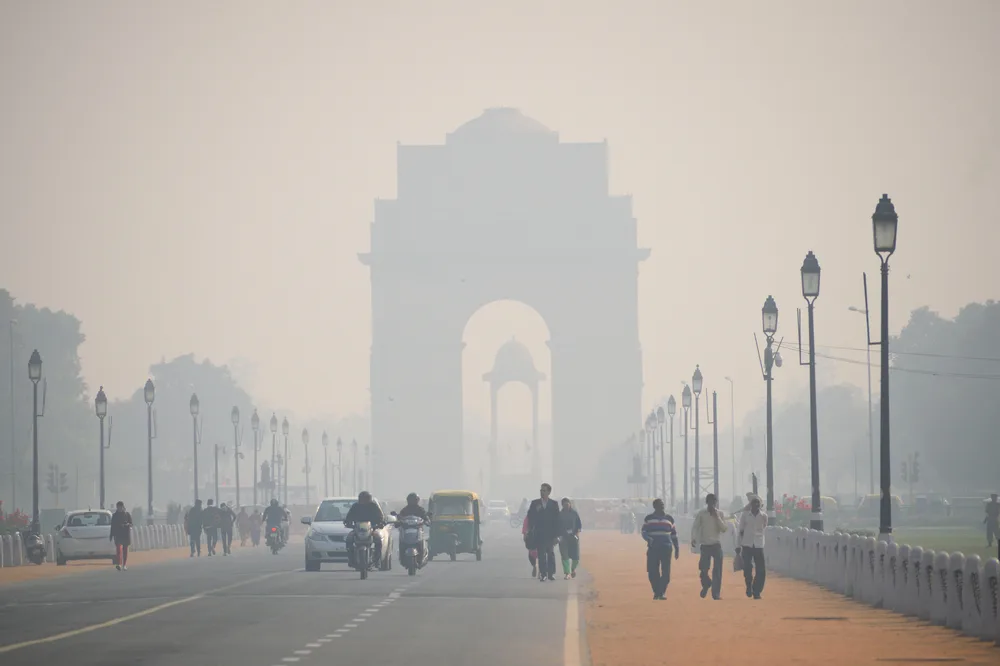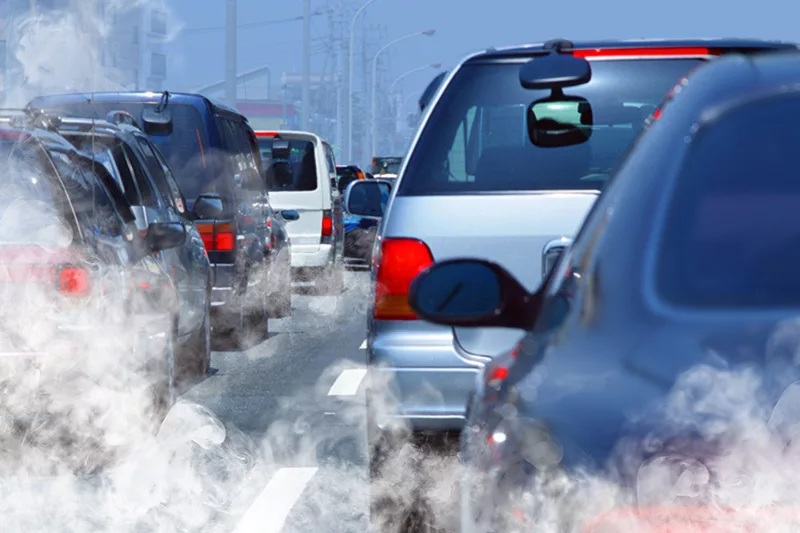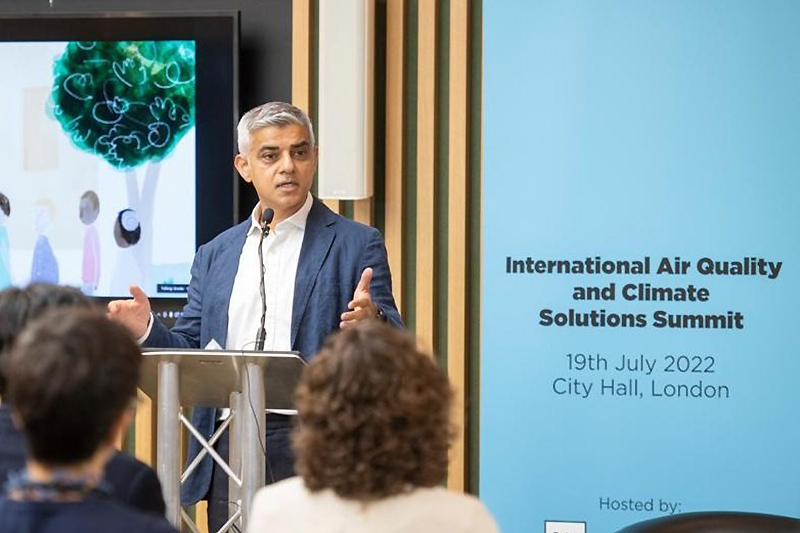Real-world emissions and Dieselgate legacy spotlighted at Climate Week NYC
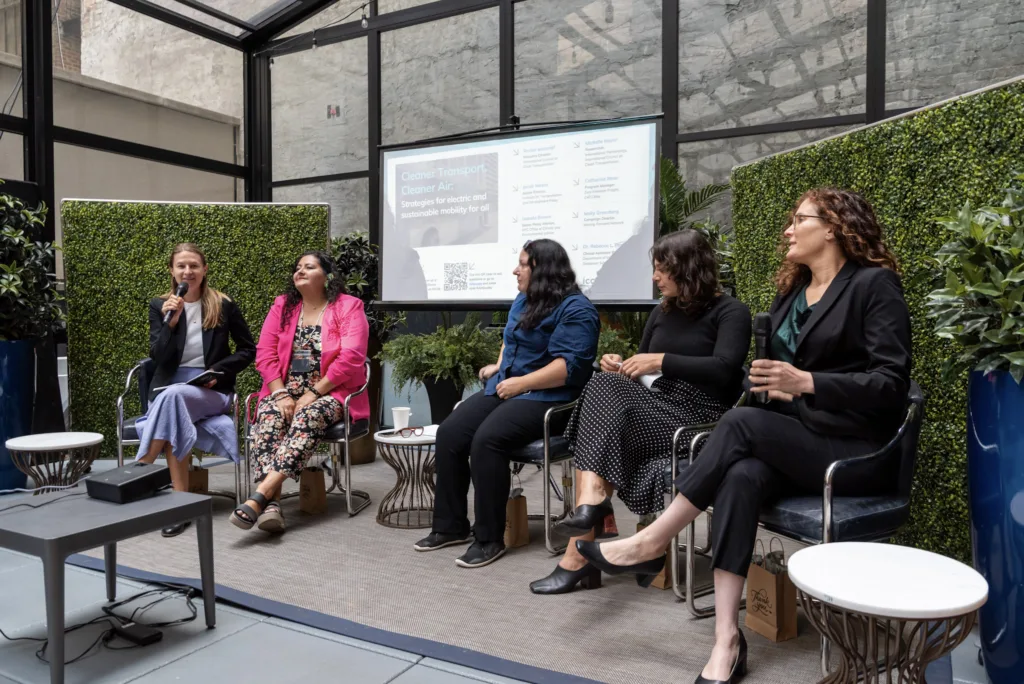
The TRUE Initiative showcased work from across its remote sensing campaigns to highlight the impact of excess emissions on air quality and public health.
Ten years on from the Dieselgate scandal, which prompted the launch of the TRUE Initiative, experts, policymakers, academics, and advocates gathered across Manhattan for this year’s Climate Week NYC to collectively accelerate the transition to a cleaner, fairer future.
The TRUE Initiative’s ongoing real-world testing campaigns in cities across Europe, where the scandal began, and around the world, show that the problem of excess emissions highlighted by Dieselgate is not solved and still creates significant consequences for air quality and public health.
“The scandal began with a story about a single manufacturer but snowballed to uncover widespread deception,” said Sheila Watson, deputy director of the FIA Foundation, a founding TRUE partner. “The human cost is real, vast, and growing. Our research estimates there are still roughly 16 million vehicles on the roads in Europe today which carry the legacy of the scandal.”
A recent study estimated that between 2009 and 2040, these excess emissions alone will claim 205,000 lives and cause 152,000 new cases of childhood asthma. Altogether, this could amount to upwards of €1.2 trillion in associated health costs.
Filling the data gap
The event ‘Cleaner transport, cleaner air: Strategies for electric and sustainable mobility for all,’ co-hosted by TRUE’s technical partner the International Council on Clean Transportation (ICCT), the International Institute for Transportation and Development Policy (ITDP), and the Crux Alliance, showcased TRUE’s ongoing work to fill the data gap often found between lab-based emissions tests and real-world driving conditions.
Michelle Meyer, researcher at the ICCT, offered key insights into the policy trends and emissions reduction strategies from around the world. For instance, the immense impact of high-usage fleets, particularly taxis and light commercial vehicles, has emerged as a key trend in TRUE’s analyses, elevating the need to accelerate electrification and encourage swifter fleet turnover.
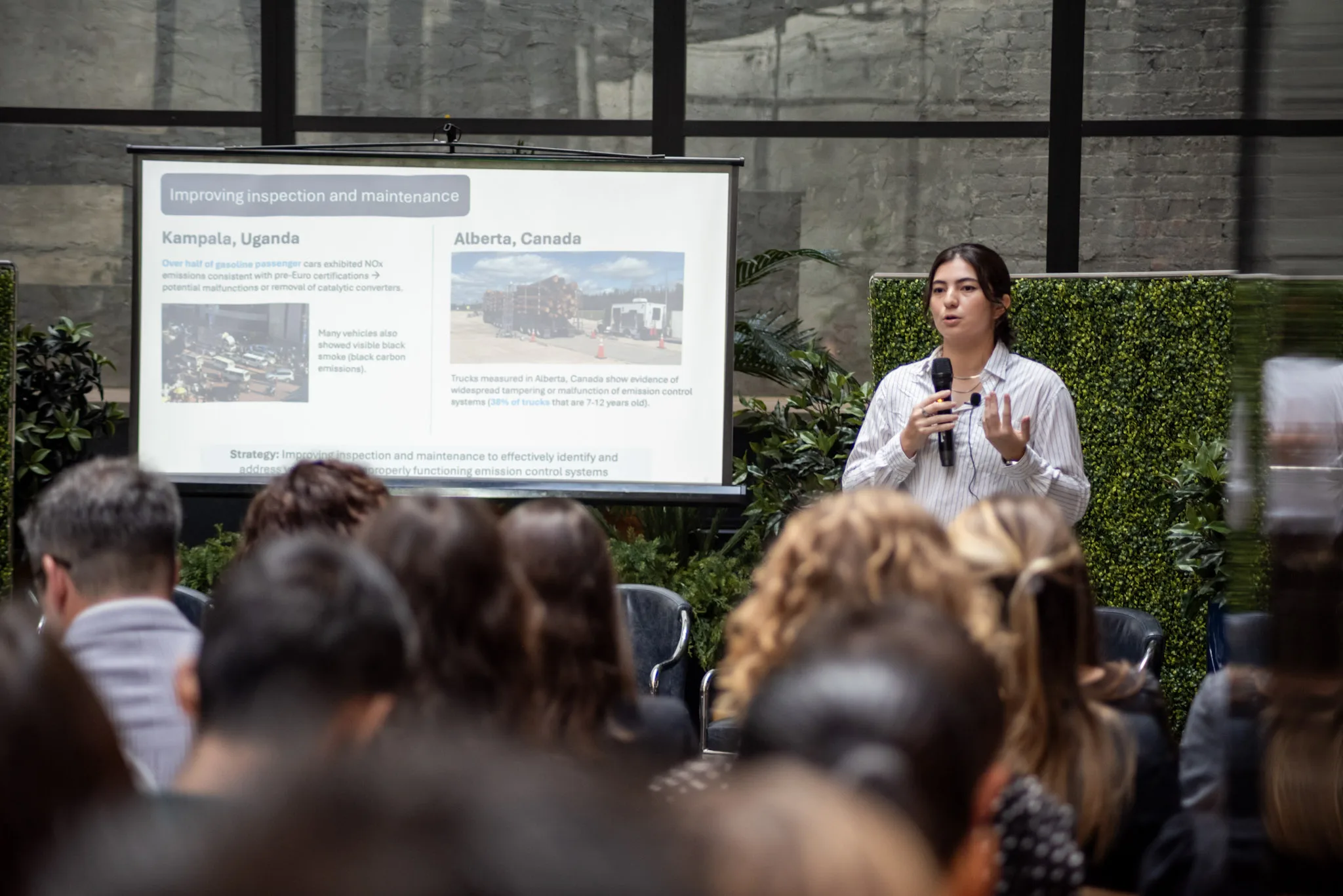
In cities like Kampala and Alberta, the need for improved or expanded inspection and maintenance programs was highlighted to solve challenges such as visible black smoke and potential tampered emissions control systems.
TRUE’s work in New York City itself, has highlighted in particular the need to put public health and equity at the forefront of transportation policy. Research revealed how people of color are disproportionately exposed to high emissions, and forthcoming research from Seattle’s port traffic will reveal much the same.
“Using data can help cities clean up the vehicles already on the roads today and encourage a transition to electric fleets at a much faster pace,” Michelle said. “It can also help to ensure that the most vulnerable amongst us are no longer the most affected.”
Advocacy as a tool for change
The event went on to feature the perspectives of advocates from a variety of backgrounds, drawing on their global research and experiences to share insights into emissions monitoring, the future of electric transport, and sustainable mobility policies that center health, safety, and equity.
The all-female panel discussed the need to bring community voices to the forefront of the conversation and connect advocates directly with industry, a tactic the TRUE Initiative often facilitates through its localized work.
Paulina López, executive director of the Duwamish River Community Coalition, has been a key partner for TRUE’s work analyzing drayage truck emissions around the Port of Seattle.
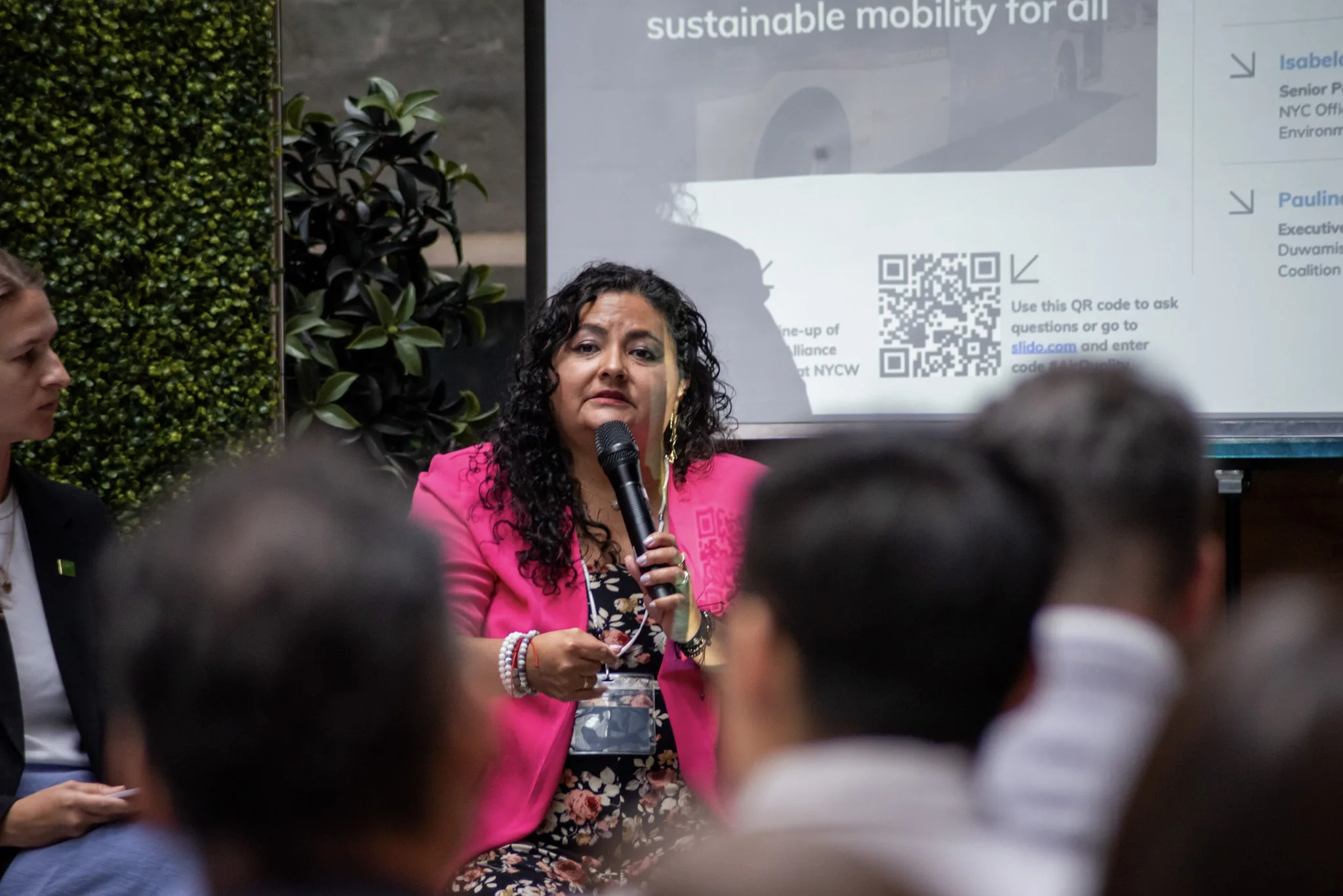
“I have watched 5,000 trucks pass through my neighborhood every year, knowing I’ve exposed my children to these harmful pollutants. The report we’re working on with TRUE is a direct consequence of the dirty air we’re breathing all the time. But there is hope,” she added during the session, “Ports need to move faster in adopting no idling policies and green zones.”
Isabella Brown, a senior policy advisor within the New York City mayor’s office, noted the importance of investing in infrastructure now, even if some of the technology has not yet caught up.
“We approach a policy by asking, ‘Is it feasible now?’ And if it’s not, we start to allocate resources to ensure that it will be by the timeline we’ve set out.”
From everyone at the event, including additional voices from the Moving Forward Network, NYU Grossman School of Medicine, and C40, the message was clear: change is more equitable and more successful when community voices have an equal seat at the table.

